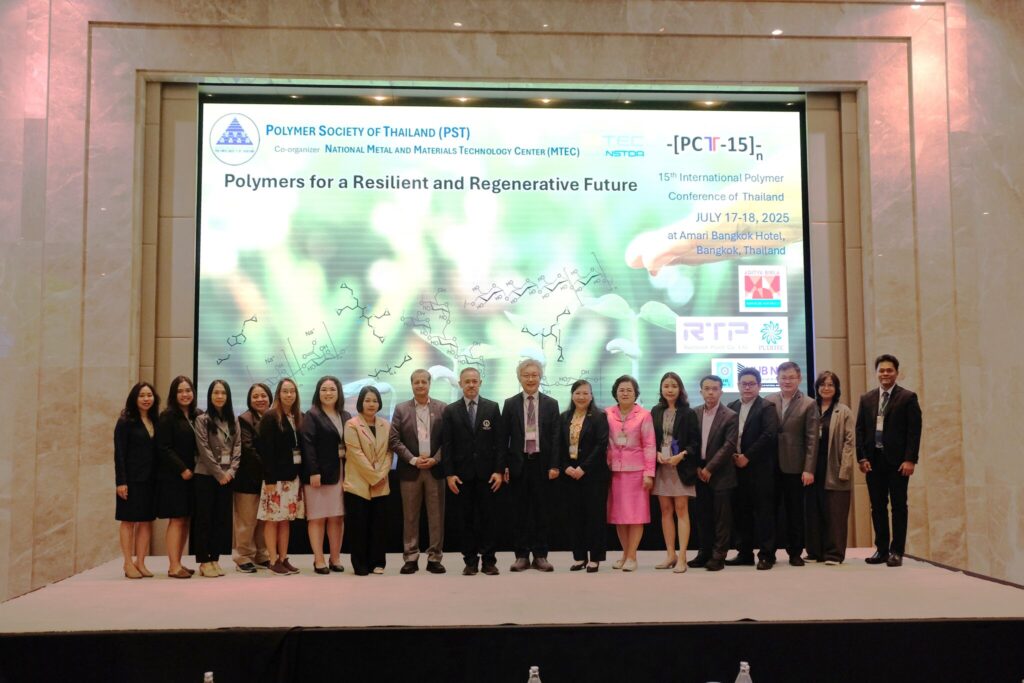
July 18, 2025
Amari Bangkok Hotel
The National Metal and Materials Technology Center (MTEC), NSTDA, in collaboration with the Polymer Association of Thailand and the Thai Packaging Designers Association, hosted a special seminar titled “Transforming Thailand’s Plastic Packaging Industry Toward Sustainability.” Held as part of the 15th International Polymer Conference of Thailand (PCT-15), the seminar aimed to promote alignment of the Thai plastics industry to align with global sustainability standards.
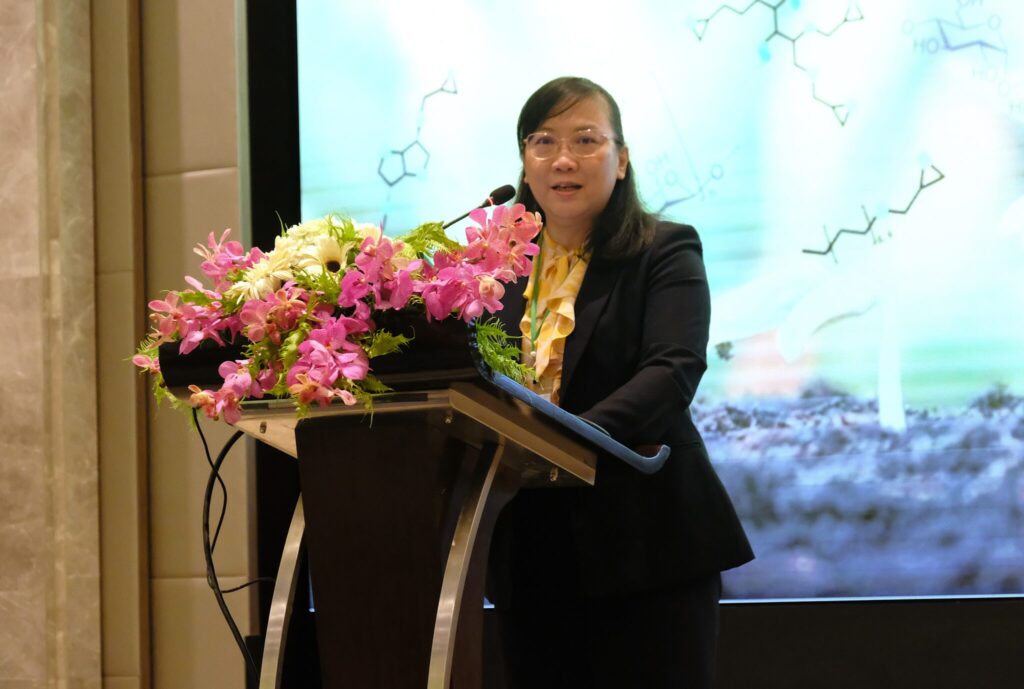
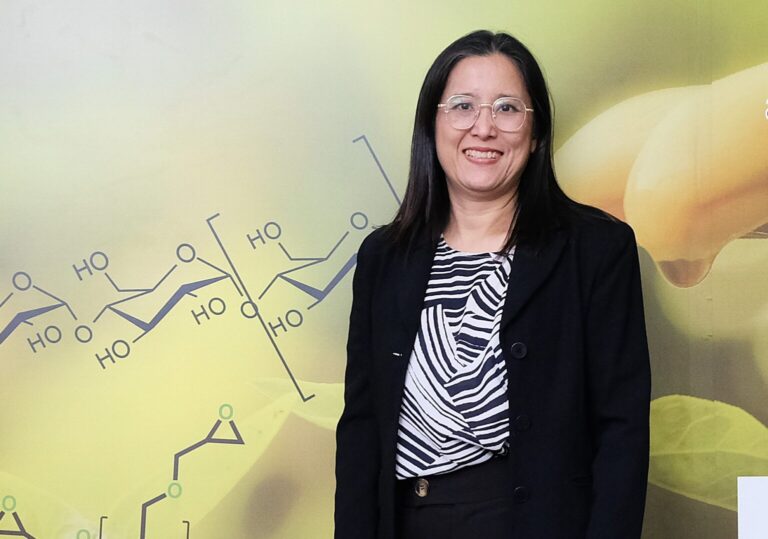
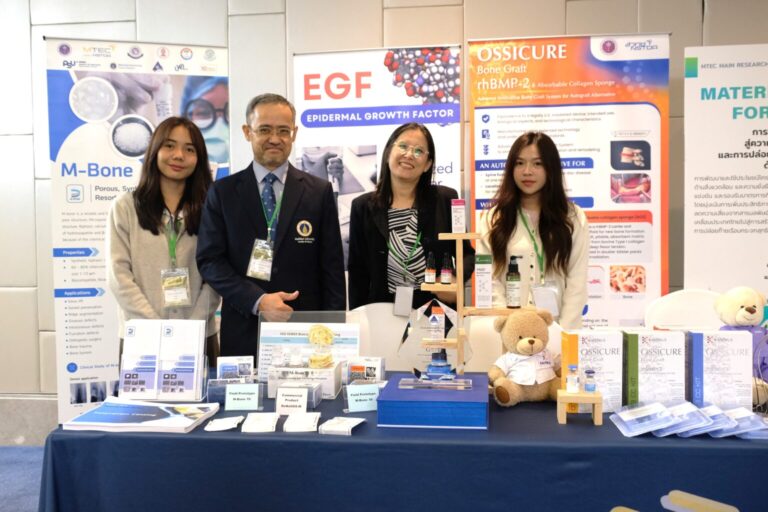
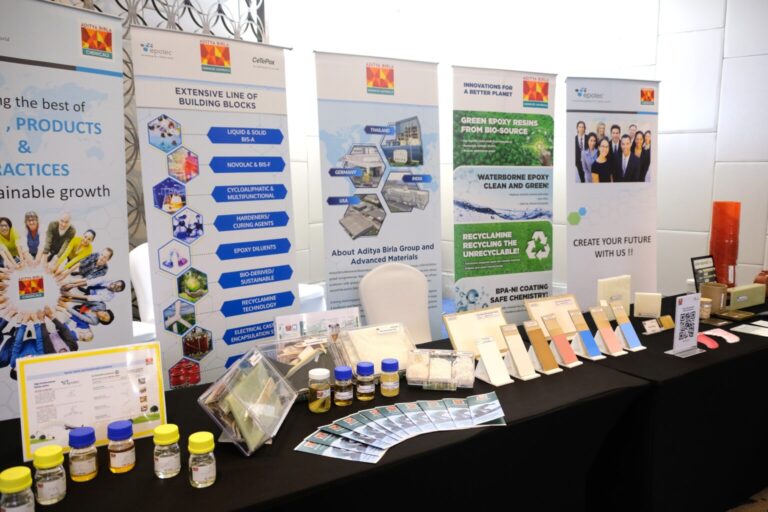
Dr. Asira Feungfungchat, Deputy Director of the National Metal and Materials Technology Center (MTEC), NSTDA, acknowledged the center’s role as the principal supporting agency for PCT-15. She emphasized that the conference served as a vital platform for fostering collaboration and exchanging knowledge in polymers and materials science, contributing to the advancement of Thailand’s industrial capabilities.
Additionally, Dr. Katanchalee Mai-ngam, Senior Researcher at MTEC, NSTDA, was invited to deliver a lecture titled “Growth Factors in Regenerative Medicine: From Bench-Top to Market,” highlighting the critical role of biomaterials and biomedical polymers in advancing medical applications. MTEC and NSTDA also featured a dedicated booth at the event to showcase their latest research in this field.
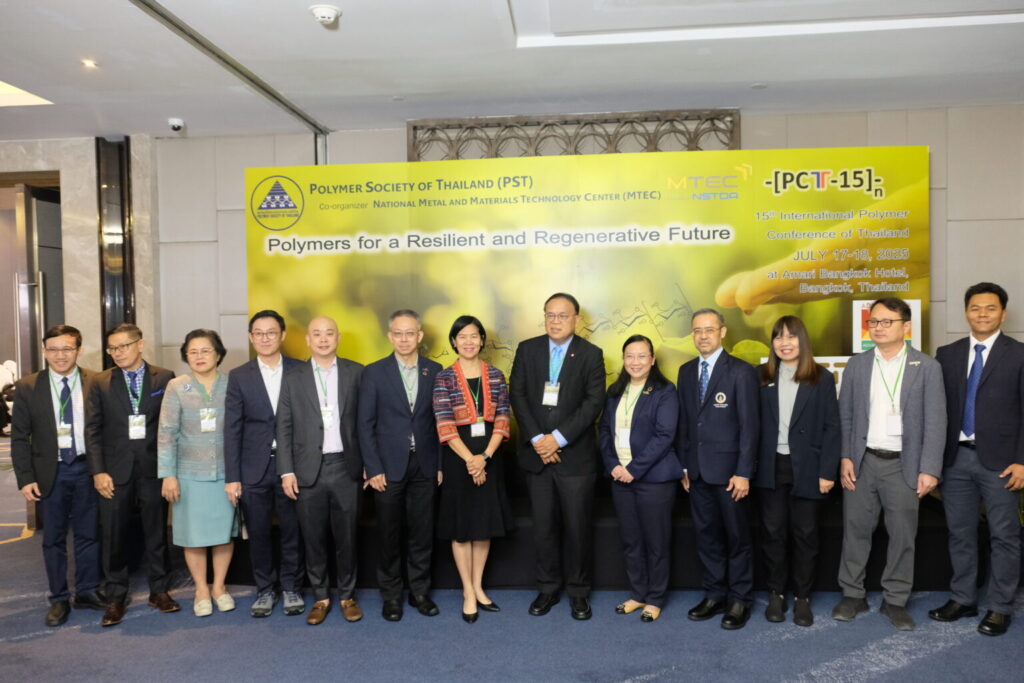
At the meeting, Dr. Wijarn Simachaya, Director of the Thailand Environment Institute, delivered a presentation titled “Global Environmental Trends and Approaches to Managing Plastics for Sustainability.” He highlighted that Thailand generates approximately 27–28 million tons of waste annually, yet only about 30–35% of it is being recycled. Notably, over 80% of plastic waste originates from land-based sources. Dr. Wijarn emphasized that the core challenge lies not in the material itself, but in insufficient waste management and limited stakeholder collaboration. He advocated for more innovative applications of plastic and encouraged greater efforts to promote reuse whenever feasible.
As part of Thailand’s strategic climate agenda, Dr. Pongvipa Laohsomboon from Thailand Science Research and Innovation (TSRI) presented the nation’s research initiatives addressing climate change. She underscored Thailand’s commitment to achieving net-zero greenhouse gas emissions by 2050, using 2011 levels as the baseline—a pivotal move to safeguard the country’s competitiveness in global trade. To support this ambition, the Ministry of Higher Education, Science, Research, and Innovation (MHESI) has earmarked over THB 3,795 million for research projects spanning the period from 2027 to 2032 (B.E. 2570–2575). These initiatives focus on strengthening research investment, advancing the circular economy, and enhancing plastic waste management systems.
Mr. Soonthorn Yongvibulsiri from the Institute for Packaging Management and Recycling for the Environment presented key regulatory developments from the European Union, including the Packaging and Packaging Waste Regulation (PPWR) and the emerging global plastics agreement—both of which are prompting Thai industry stakeholders to accelerate adaptation. He emphasized the upcoming implementation of the Extended Producer Responsibility (EPR) scheme in 2027 (B.E. 2570), alongside plans to establish Producer Responsibility Organizations (PROs) tasked with collecting fees from producers based on the type of packaging and its management complexity. Mr. Soonthorn also introduced an eco-modulation system designed to incentivize manufacturers to create packaging that is easier to recycle, thereby lowering associated costs.
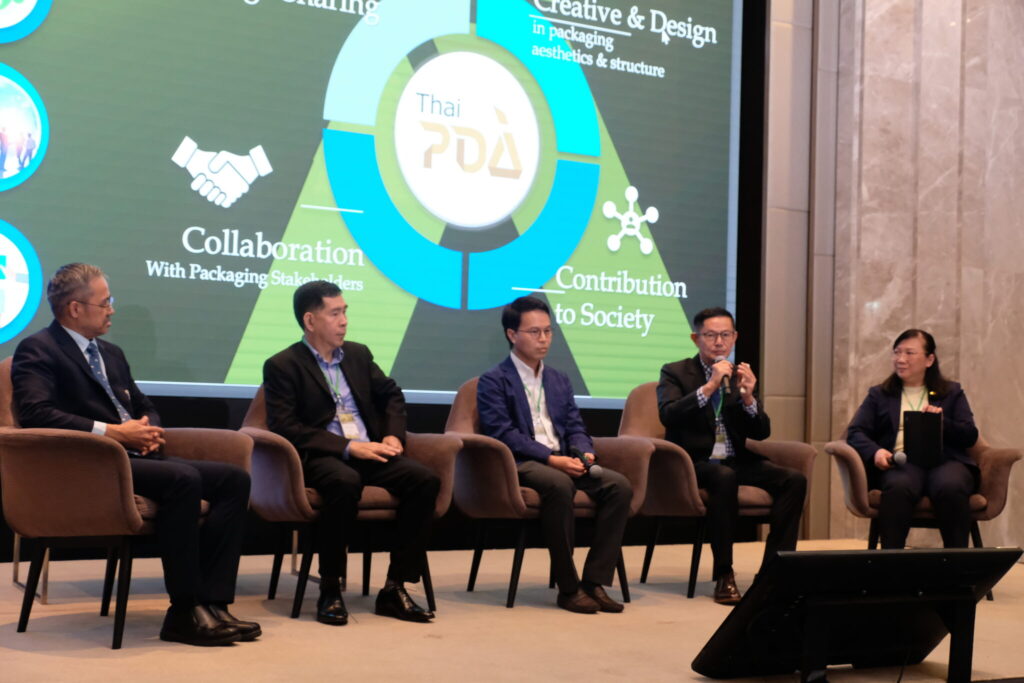
Following the overview of key challenges and regulatory developments, the forum progressed to a panel discussion titled “Pathways to Sustainable Packaging — Insights from Brand Owners, Manufacturers and Designers.” The session was co-moderated by Assoc. Prof. Dr. Taweechai Amornsakchai, President of the Polymer Association of Thailand, and Dr. Asira Feungfungchat, Deputy Director of the National Metal and Materials Technology Center (MTEC), NSTDA.
During the discussion, industry experts shared practical insights and forward-looking strategies. Mr. Chodnarin Vipada, a specialist in sustainable packaging design and Secretary-General of the Thai Packaging Designers Association, highlighted the rising demand for flexible mono-material packaging, particularly for export-oriented products. He also proposed innovative alternatives to conventional plastics, such as the use of natural materials like banana leaves, to support more sustainable packaging solutions.
Mr. Rungroj Bundtarak, Managing Director of A. Best Inter Products Co., Ltd. shared the company’s commitment to sustainability through the use of up to 100% post-consumer recycled (PCR) content, guided by the 3Rs principle. He advocated for a shift in mindset by redefining ‘waste’ as a valuable resource —coining the term ‘Khayan’ (a Thai word meaning ‘willing to do something’)—and encouraged the public to “Yak Khayan” (meaning ‘willing to sort the waste’) or actively reclaim and reintegrate plastic into the production cycle.
Meanwhile, Mr. Wattana Krisnavarin, Deputy Managing Director of Thai Nam Poly Pack Co., Ltd., presented a comprehensive BCG Economy strategy: Bio — focusing on the development of biocompostable polymers; Circular — producing mono-PE/PP and incorporating 30% PCR that meets Global Recycled Standards (GRS) certification; and Green — minimizing plastic usage through down-gauging technology. He also advocated redefining “waste” as a resource by calling it “Khayan” and encouraged the public to “Yak Khyan,” or actively recover and reintegrate plastic into the production cycle.
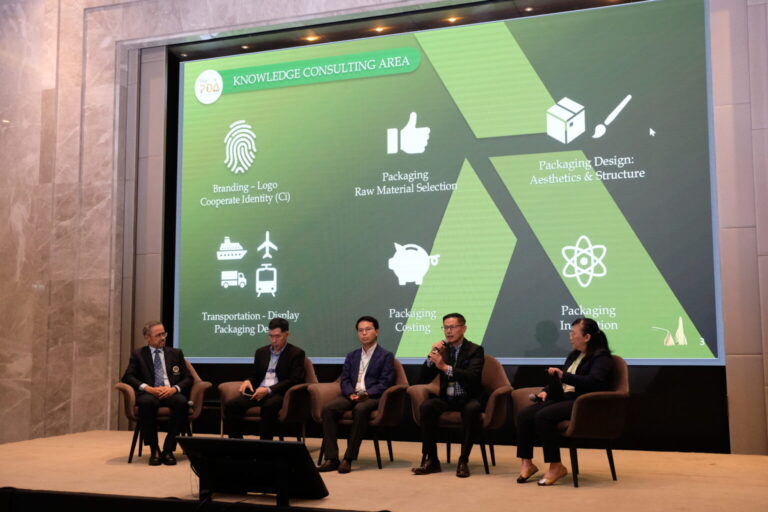
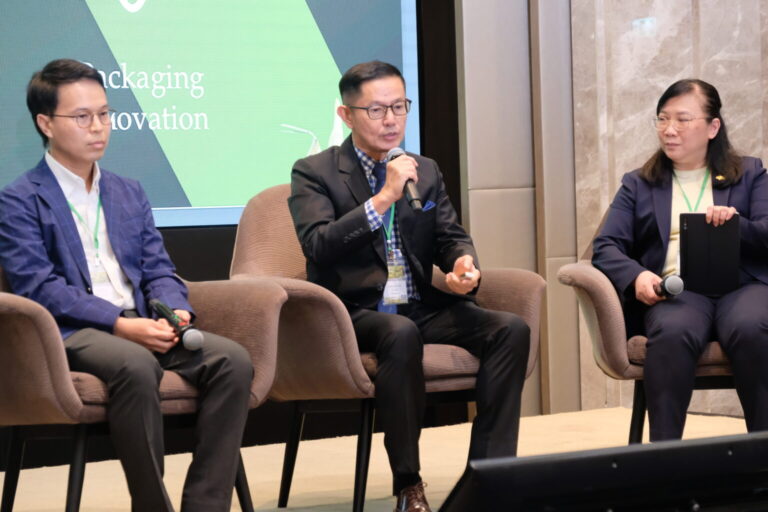
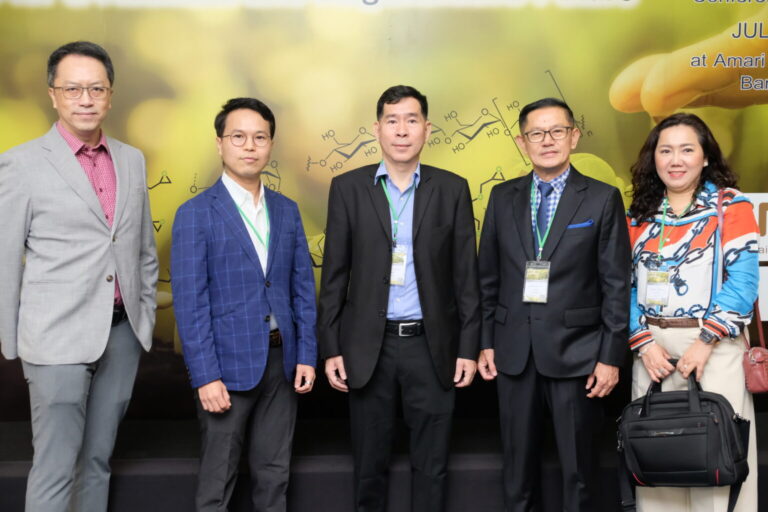
Business operators recommended that government agencies and research institutions collaborate to develop commercially viable technologies that align with industry cost structures. They also emphasized the importance of conducting environmental impact assessments across supply chains, such as evaluating the Carbon Footprint of Product (CFP). A key priority identified was the acceleration of barrier-coating technologies for mono-materials packaging, along with the advancement of high-quality bio-based materials capable of replacing conventional options without compromising performance.
The event underscored the vital cooperation among government bodies, the private sector, and research organizations in steering Thailand’s plastics industry toward a sustainable Net Zero target by 2050.
